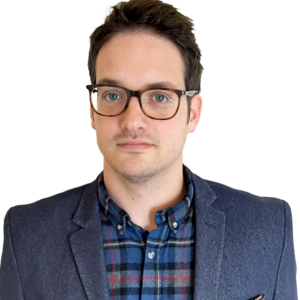Professional Experience
Job position
2020-2022 : Temporary research and teaching assistant (ATER)
Faculty of Economics, Social science and Territories (FSEST) of the University of Lille
2017-2020: PhD Candidate
CLERSÉ, University of Lille
2016 : Research project assistant
CLERSÉ, University of Lille
Quantitative research conducted as part of the ANR PORQUE that led to the publication of Rosa Bonheur, 2019, La Ville vue d'en bas. Travail et production de l'espace populaire, Paris, Amsterdam.
Academic qualification
2017-2022 : PhD in sociology
CLERSÉ, University of Lille
Title: The construction of the fight against radicalization. Recommandations and implementations of a new state prerogative (2009-2019)
Supervisors: Dietmar Loch (Professeur des universités/CLERSÉ), Grégory Salle (CNRS/CLERSÉ)
Thesis committee: Gilles Chantraine (CNRS/CLERSÉ), Vanessa Codaccioni (Maîtresse de conférences/CRESSPA)
Jury:
Évelyne Baillergeau, Senior Researcher at the Amsterdam Institute for Social Science Research
Laurent Bonelli, Maître de conférences HDR at the University Paris Nanterre
Gilles Chantraine, Chargé de recherche CNRS HDR at CLERSÉ
Vanessa Codaccioni, Maîtresse de conférences HDR at the University Paris 8
Dietmar Loch, Professeur at the University of Lille
Grégory Salle, Directeur de recherche CNRS at CLERSÉ
Renée Zauberman, Directrice de recherche émérite CNRS at CESDIP
Abstract: Following the terrorist attacks perpetrated in France in the 2010s, the notion of "radicalization" appears as a commonplace in the fight against terrorism. It has given rise to a great deal of academic literature, intense media debates, numerous political statements and abundant parliamentary work, while at the same time being translated into public policies throughout the French national territory. Yet, despite this intense discursive and scriptural work, "radicalization" is early perceived on stable and shared bases. How do we build a set of political and media recommendations, based on a notion without any consensual definition? And what happens when, from being recommendations, the fight against radicalization is transformed into a set of work routines? To answer these questions, this work draws on a method combining both a public discourses analysis and field research on the Youth Judicial Protection Service (PJJ). Using four corpora of public discourses, this study traces the context of emergence of this prerogative, the modalities of treatment and the different profiles targeted by these ambitions. By observing the implementation of the fight against radicalization into the Youth Judicial Protection Service through qualitative interviews and observations, this work underlines the tensions, the paradoxes and the professional disruptions driven by the emergence of this new motto.
Keywords : radicalization ; deradicalization ; public discourses ; public action ; Youth Judicial Protection Service ; "Laicity and Citizenship" officers
2014-2017 : Master's degree in Sociology and Anthropology
University of Lille
2011-2014 : Licence of Sociology and Anthropology
University of Tours




